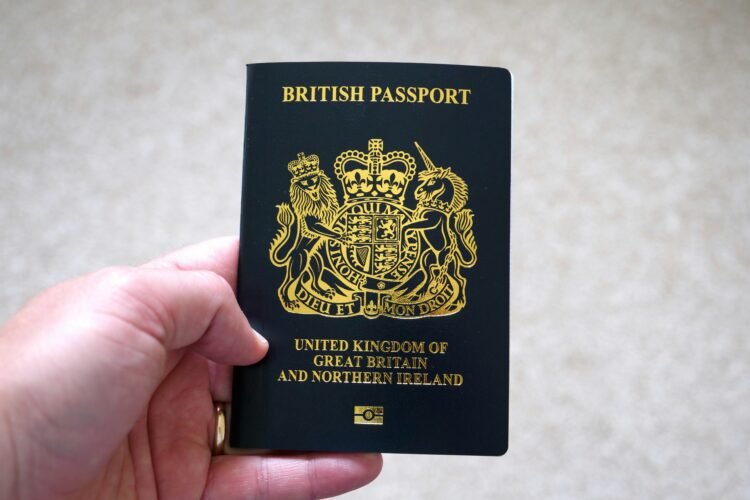
Brexit in 2016 hit the UK with essential implications on folks’s psychological well being, particularly those that belong to ethnic minority backgrounds. However was there an earlier occasion within the UK that would have foreshadowed related results on people?
Sure! The announcement of the ‘hostile atmosphere’ insurance policies in 2012.
The method began with then-House Secretary Theresa Might’s want “to create right here in Britain a extremely hostile atmosphere for unlawful migration”. This led to the passage of the 2014 and 2016 Immigration Acts. That is the place the examine that we’re summarising on this weblog (Dotsikas et al, 2024) turns into related. The researchers appeared on the impacts of those Acts by evaluating folks from ethnic minority backgrounds with White British folks utilizing a UK Family Longitudinal Survey.
Hostile atmosphere insurance policies originated from an try to forestall unlawful immigration into the UK. Additional, the federal government’s purpose was to determine those that might need already made it to the UK by unlawful means. Nevertheless, with a purpose to do that, numerous companies, equivalent to landlords or employers, got immigration management, the place they’d be held accountable in the event that they had been to make use of or lease lodging to somebody that they’ve motive to imagine may be residing or working within the UK illegally.
In efforts to ensure the Immigration Act 2016 was dealt with with precision, these authorities began to show structural racism, whether or not or not it’s by not renting to ‘foreign-looking’ folks, finishing up discriminatory checks, using restrictions primarily based on ethnicity and so forth.
In response, and constructing on earlier work, a gaggle of researchers from UCL, Sorbonne Université, College of New South Wales, and Camden and Islington NHS Basis Belief got here collectively to see how people’ psychological well being might need been affected by evaluating the pre-policy (2009-2012); transition (2012-2016); and ongoing coverage (2016-2020) durations. Findings recommend psychological misery elevated amongst Pakistani and Bangladeshi folks following the introduction of the insurance policies, whereas Caribbean folks confirmed a small lower throughout coverage eras, and ranges remained secure within the White British group. Thus the speculation predicting a rise in psychological misery over the examine interval, significantly in minoritised ethnic teams was rejected.

The UK’s ‘hostile atmosphere’ insurance policies was believed to presumably trigger hurt to the psychological well being of people of ethnic minority.
Strategies
The researchers used information collected on the nationwide survey ‘Understanding Society: UK Family Longitudinal Survey (UKHLS)’. To know the influence of the laws on psychological well being and psychological misery, they in contrast the common well being questionnaire (GHQ-12) scores for folks from Black Caribbean, Black African,Indian, Bangladeshi, Pakistani, and White British backgrounds.
The GHQ is a self-rated questionnaire which measures outcomes like despair, nervousness, and sleep disturbance. Greater GHQ scores point out larger psychological misery.
The researchers checked out imply GHQ scores for every ethnic group over three time durations:
- Pre-policy period (2009-2012): Earlier than the coverage was applied.
- Transition period (2012-2016): When the coverage adjustments that aimed to extend social exclusion for undocumented migrants began being put in place.
- Ongoing coverage period (2016-2020): After the coverage has been established.
Knowledge from 42,968 members had been included on this examine, with 35,918 White British members and between 1132-1,905 members for the opposite ethnic teams.
Outcomes
Within the pre-policy period, Pakistani and Bangladeshi folks had the best common psychological misery scores, whereas Indian and White British people had the lowest.
The imply GHQ rating of Bangladeshi and Caribbean people elevated within the transition period, then barely decreased within the ongoing coverage period. In distinction, the GHQ scores of African and Indian people decreased within the transition period earlier than barely growing within the following interval. Ultimately, their common scores had been decrease than the scores of White British folks which remained secure throughout eras.
Lastly, the imply GHQ scores of Pakistani folks elevated over the transition and ongoing coverage period.

The very best influence of hostile insurance policies was seen amongst Pakistani and Bangladeshi teams.
Conclusions
Opposite to expectations, there was no general vital impact of the ‘hostile atmosphere’ coverage on psychological misery throughout the ethnic teams included within the examine. The GHQ scores of various ethnic teams adopted distinct patterns of variation throughout coverage durations.
This highlights the significance of contemplating ethnic teams as distinct entities. Certainly, even when uncovered to the identical stressor (the coverage), the psychological well being of individuals from completely different backgrounds will probably be impacted otherwise.

The examine discovered no general vital impact of the ‘hostile atmosphere’ coverage on psychological misery throughout the ethnic teams.
Strengths and limitations
Strengths of this examine embody that the 12-item Basic Well being Questionnaire (GHQ) is a multi-dimensional measure of psychological well being. This questionnaire can also be extensively validated because it has been extensively studied and has proven sturdy reliability and generalisability. Nevertheless, regardless that the GHQ has been validated throughout completely different cultures and in addition has a extra detailed evaluation of psychological misery, the GHQ as an final result measure just isn’t delicate to adjustments over time whereas the Kessler Psychological Misery scale is.
Moreover, lacking information on key variables like psychological misery can have an effect on the validity of the outcomes. Moreover, if the traits of the members who dropped out are completely different from those who remained, this will have an effect on the generalisability of the findings. For the reason that lacking information was from sure teams, i.e., it was not random, there may have been an overestimation or underestimation of the consequences being studied.
Psychological misery was measured utilizing self-reported questionnaires that are subjective and particular person perceptions of misery may be influenced by one’s cultural and ethnic background. Cultural components have to be thought-about as they’ll have an effect on the potential bias in understanding the wording of statements.
Though the evaluation strategies had been intensive, this examine doesn’t think about intersectionality because the evaluation doesn’t totally account for components equivalent to gender, age, class, or immigration standing interacting with ethnicity, which may result in completely different ranges of vulnerability to hostile atmosphere insurance policies. Moreover, it might have been constructive if this examine was supplemented with qualitative interviews from the aforementioned ethnic teams to know if particular person insurance policies can have completely different impacts on psychological well being.

Self-reported misery may be formed by cultural and ethnic perceptions—highlighting the necessity for culturally delicate instruments.
Implications for follow
Clear pointers on policyholders’ duties may be applied to mitigate the psychological misery skilled. For instance, establishing interdepartmental collaboration (public well being, social companies, immigration) to systematically monitor psychological well being impacts and make vital coverage changes. Or implementing a psychological well being influence evaluation as a part of coverage design, making certain future immigration insurance policies bear pre- and post-implementation evaluations.
Focused assist for affected communities could have to be put in place because of this examine. Psychological well being assist group leaders and healthcare suppliers needs to be educated to detect policy-driven psychological misery. This may very well be achieved by growing NHS coaching programmes to assist recognise signs of policy-driven psychological misery (e.g., nervousness linked to immigration uncertainty), implementing culturally tailored intervention methods to raised assist minoritised communities, and introducing voluntary psychological well being screenings in high-risk populations to make sure early intervention.

Interdepartmental collaboration between public well being, social companies and immigration may assist monitor the influence of insurance policies on all citizen’s wellbeing.
Assertion of pursuits
No conflicts of curiosity to declare.
Contributors
Due to the UCL Psychological Well being MSc college students who wrote this weblog from Drini Scholar Group: Christina Tzenios, Alia Galal, Saba Ghouri, Joel Barnett, Alaine Fernandes, Yipeng Zhang, Yalan Wang, Katharina Zankel and Hilal Karaduman.
UCL MSc in Psychological Well being Research
This weblog has been written by a gaggle of scholars on the Medical Psychological Well being Sciences MSc at College School London. A full listing of blogs by UCL MSc college students may be discovered right here.
We repeatedly publish blogs written by particular person college students or teams of scholars finding out at universities that subscribe to the Nationwide Elf Service. Contact us if you happen to’d like to seek out out extra about how this might work in your college.
Hyperlinks
Major paper
Dotsikas, Okay., McGrath, M., Osborn, D.P.J. et al. (2024) Exploring the influence of ‘hostile atmosphere’ insurance policies on psychological misery of ethnic teams within the UK: a differences-in-differences evaluation. Soc Psychiatry Psychiatr Epidemiol (2024). https://doi.org/10.1007/s00127-024-02705-2



